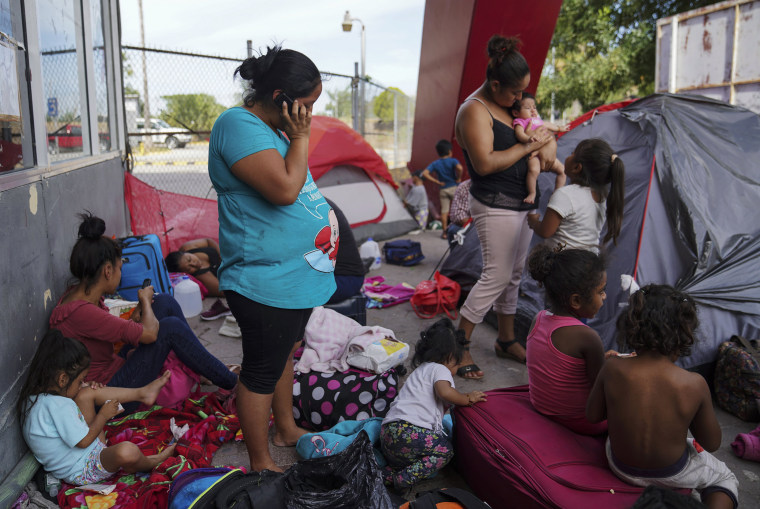The American Civil Liberties Union filed a complaint “demanding an immediate end” to the government turning away pregnant asylum-seekers under the Trump administration’s remain in Mexico policy.
The Department of Homeland Security “has returned a significant number of pregnant women to Mexico … exposing them to further harm” in dangerous border towns, the ACLU of Texas and the ACLU Border Rights Center said in a complaint Thursday. The complaint, filed to the Department of Homeland Security’s Office of the Inspector General, called for a full investigation and an immediate end to the practice.
“Pregnant women should never have to worry about their safety or their health during pregnancy, and yet this is the situation [Customs and Border Protection] is forcing upon these expecting mothers,” Astrid Dominguez, director of the ACLU Border Rights Center, said in a statement.
“While the pregnant women we interviewed are among the most at-risk, there are thousands more suffering as the federal government continues to deny their right to seek asylum under the unlawful return to Mexico program,” she said. “We urge the Office of Inspector General to investigate the ongoing mistreatment of pregnant asylum seekers and demand an immediate end to the practice of removing vulnerable people into dangerous situations.”
The complaint details the experiences of 17 asylum-seekers who are or were pregnant when they were sent back to Mexico to wait for their immigration cases to play out. The ACLU said the women reported mistreatment, lack of medical care and unsafe living conditions.
More than 40,000 migrants have been sent back to Mexican border towns since the policy began in Tijuana in late January.
In the complaint, the ACLU wrote that a Honduran migrant who is eight months pregnant and was returned to Mexico in August said while she was detained in the U.S. a woman in uniform told her “she should abort her baby because ‘Trump didn’t want there to be any more pregnant people here.’” The woman said she has had no prenatal care in Mexico, according to the ACLU.
A 22-year-old Guatemalan woman who is five months pregnant told the ACLU that three days after being returned to Mexico she was hospitalized and treated for an infection and dehydration, according to the complaint.
The ACLU also wrote that a 25-year-old Guatemalan woman who is six months pregnant said agents told her the president does not want them in the country and that was why they were being sent back.
“After CBP returned her to Matamoros, with no money or support, she was forced to live at the migrant encampment on the street,” the ACLU wrote. “She had been sleeping in the open air until being gifted a tent two weeks prior to ACLU staff interviewing her, however, she had already developed back pain and a cough.”
A Department of Homeland Security spokesperson said in a statement that agents and officers implementing the remain in Mexico program are directed "to review arriving individuals for known physical or mental health conditions or the potential to face persecution or torture in Mexico."
"Creating a categorical exclusion for pregnancy could have a range of potential negative implications, including the choice between the invasiveness of testing every woman for pregnancy versus making assumptions based on appearance," the statement said.
"The Department continues to review the program to make any and all necessary improvements," the spokesperson said.
The Trump administration has defended the policy as necessary to weed out “fraudulent” asylum claims amid the influx of Central American families coming to the border.
In April, a federal judge temporarily blocked the policy but weeks later the 9th Circuit Court of Appeals allowed the government to resume sending people back as a legal challenge to it plays out in court.

